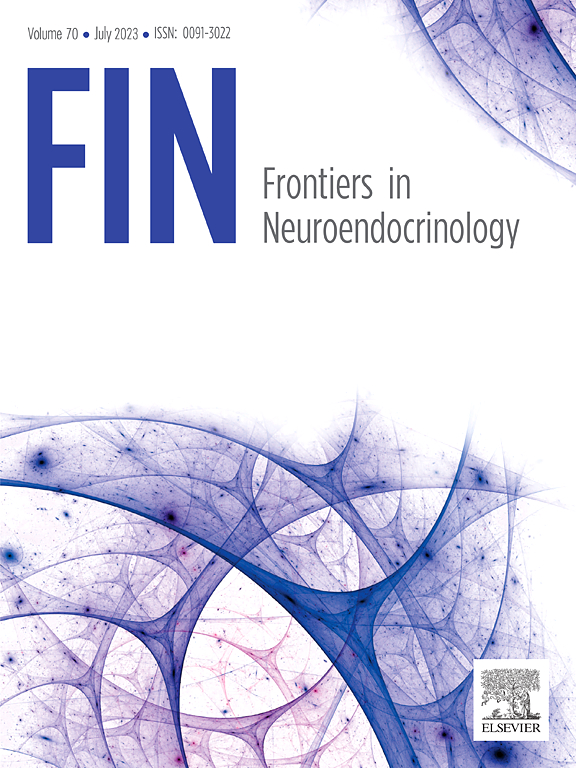性别对临床前酒精研究的关键影响——来自斑马鱼的见解
IF 6.7
1区 医学
Q1 ENDOCRINOLOGY & METABOLISM
引用次数: 0
摘要
性别是一个重要的生物学变量,在酒精相关影响的研究中被广泛认可。斑马鱼(Danio rerio)是临床和临床前啮齿动物研究的补充,是第二大使用的实验室物种,也是生物医学中强大的模式生物。像临床和啮齿动物模型一样,斑马鱼在酒精相关反应中表现出明显的性别差异。总的来说,这些证据表明斑马鱼成为了一个敏感的模型物种,可以进一步深入研究酒精研究中常见的性别差异。本文章由计算机程序翻译,如有差异,请以英文原文为准。
The critical impact of sex on preclinical alcohol research – Insights from zebrafish
Sex is an important biological variable that is widely recognized in studies of alcohol-related effects. Complementing clinical and preclinical rodent research, the zebrafish (Danio rerio) is the second most used laboratory species, and a powerful model organism in biomedicine. Like clinical and rodent models, zebrafish demonstrate overt sex differences in alcohol-related responses. Collectively, this evidence shows that the zebrafish becomes a sensitive model species to further probe in-depth sex differences commonly reported in alcohol research.
求助全文
通过发布文献求助,成功后即可免费获取论文全文。
去求助
来源期刊

Frontiers in Neuroendocrinology
医学-内分泌学与代谢
CiteScore
13.30
自引率
6.80%
发文量
62
审稿时长
68 days
期刊介绍:
Frontiers in Neuroendocrinology (FIN) publishes a wide range of informative articles including comprehensive reviews, systematic reviews, opinion pieces, and meta-analyses. While the majority of reviews are invited, we also embrace unsolicited reviews and meta-analyses, as well as proposals for thematic special issues, provided they meet our rigorous quality standards. In addition, we encourage authors to submit commentaries that concisely present fresh ideas or offer further analysis to delve deeper into the implications of an article published in our journal.
 求助内容:
求助内容: 应助结果提醒方式:
应助结果提醒方式:


